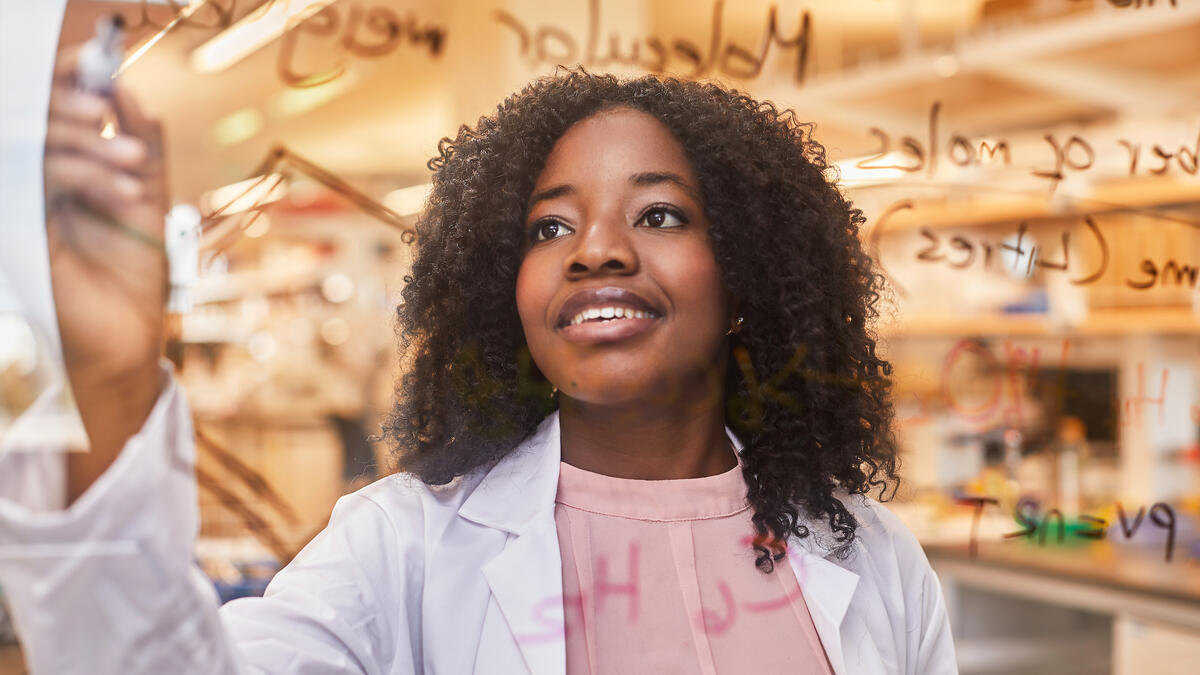The National Science Foundation has renewed a $2.5 million grant over the next two years for the the Western Alliance to Expand Student Opportunities (WAESO) program. Headquartered at Arizona State University, WAESO works to increase enrollment in STEM disciplines for historically underrepresented students.
The WAESO Alliance was one of the first projects sponsored by the NSF’s Louis Stokes Alliances for Minority Participation (LSAMP) and includes 13 institutions across Arizona, Utah and Colorado.
As the lead university of the program, ASU supports these colleges and universities to promote diversity in STEM, enhance research collaborations and student experiences across institutions. Jean Andino has directed WAESO on behalf of ASU since 2019 and was involved in LSAMP since 2006.
Andino, who is also an associate professor in the Ira A. Fulton Schools of Engineering and a senior global futures scholar in the Julie Ann Wrigley Global Futures Laboratory, says WAESO’s goals are accomplished primarily through intensive research experiences and mentoring from STEM faculty, peer mentoring activities, summer bridge programs and virtual workshops that culminate in an annual meeting held at ASU.
Topics range from how to have an entrepreneurial mindset and innovative research tactics to how to apply to graduate school. According to Andino, this is paramount among all WAESO participants.
“Although this support is offered at ASU, the grant helps us to involve all of our partner schools,” she says. “This is a much-needed activity since many of the WAESO students that we serve don’t think about higher education beyond their undergraduate degree.”
Andino teaches a variety of environmental engineering courses and is an expert in air quality research, and is grateful for the several new components that will be added and enhanced as a part of the grant renewal. A few of these additions include more resources toward analyzing the efficacy of multicontext theory within WAESO training; cross-institutional research to enhance student transitions from the community college to four-year colleges; and peer mentoring among Native American students.
“Since Native American students are still vastly underrepresented in STEM, a goal is to develop a more effective, culturally responsive mentoring approach for these students, that we also hope to transition to other underrepresented or underserved populations,” Andino says.
Andino says another critical component to the WAESO project is to introduce a more formal study of the multicontext theory to the program. Multicontext theory (MCT) is the understanding that people have many facets in their lives that intersect or overlap with each other.
“Our social science team has shown MCT to be useful in empowering diverse individuals in STEM, as well as altering institutional approaches in teaching, hiring and administration,” she says. “Our goal will be to intentionally activate MCT in research and to show people how to do this.”
Andino says that by studying multicontext theory, focusing on career development and enhancing mentorship programs to WAESO, ASU continues to position itself as a leader in institutional research, innovation and inclusivity across STEM disciplines.
“The grant helps us to promote collaboration and convergence in research in a way that highlights and activates diversity as a resource," she said. “It simultaneously uplifts the next generation of diverse STEM students.”
More Science and technology

Diagnosing data corruption
You are in your doctor’s office for your annual physical and you notice the change. This year, your doctor no longer has your health history in five-inch stack of paperwork fastened together with…
Large-scale study reveals true impact of ASU VR lab on science education
Students at Arizona State University love the Dreamscape Learn virtual reality biology experiences, and the intense engagement it creates is leading to higher grades and more persistence for biology…

ASU-led space telescope is ready to fly
The Star Planet Activity Research CubeSat, or SPARCS, a small space telescope that will monitor the flares and sunspot activity of low-mass stars, has now passed its pre-shipment review by NASA.…


